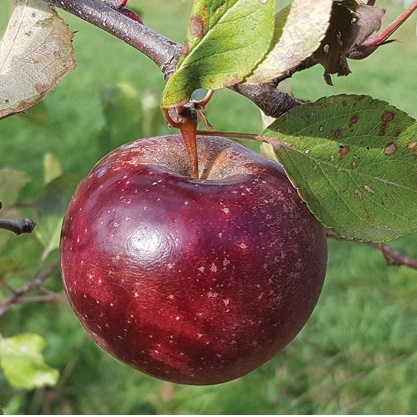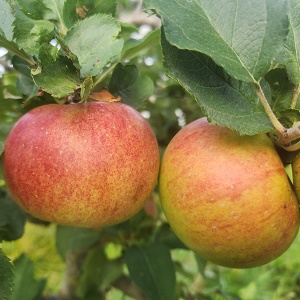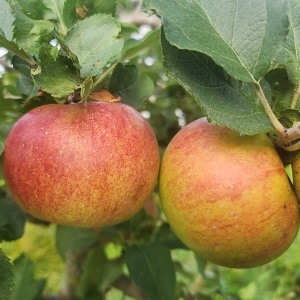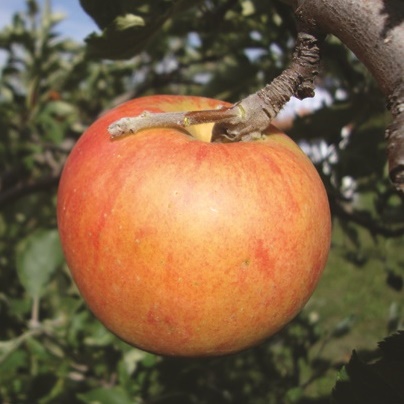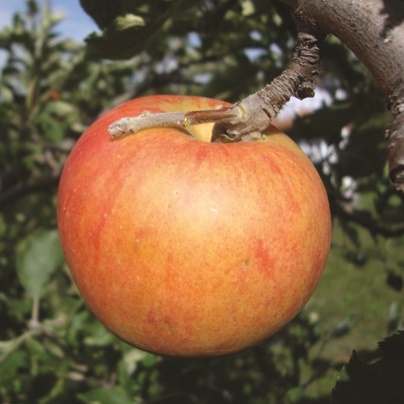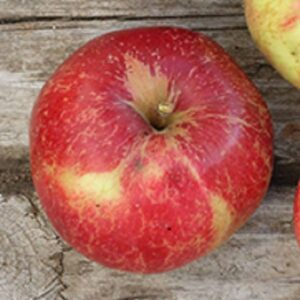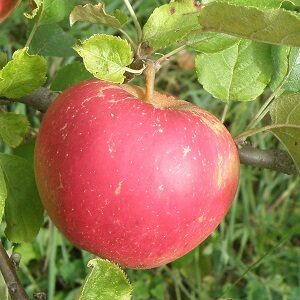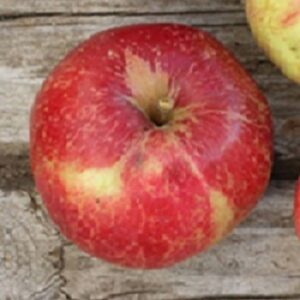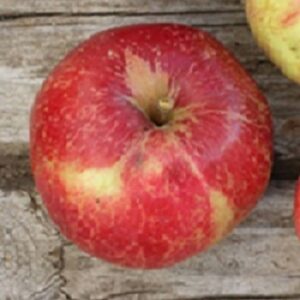Apple : BLACK OXFORD Large Semi-Dwarf (B118)
$49.95
A rare heirloom apple which is making a real comeback, it was discovered around 1790 on a farm in Oxford County, Maine. Records exist that indicate the original tree was still producing in 1907! Mid-sized deep purple fruit has a glossy black sheen when fully ripe. A great all purpose variety but truly superb for drying or cider. Long storage enhances this apple's sweetness, with peak flavour for the best eating by late winter. Black Oxford is somewhat slow to start bearing and like many older varieties it has a tendency toward biennial (every other year) bearing. It shows both insect and disease resistance.
NEEDS A POLLENIZER | ZONE 4 | HARVEST: LATE OCT.
.
.
Rootstocks
G41 Dwarf
G935 Small Semi-Dwarf
G969 Small Semi-Dwarf
G30 Semi-Dwarf
G890 Semi-Dwarf
Pollenator definitions
NEEDS A POLLENIZER ̶ means another tree of the same type or kind but a different variety must be blooming nearby at the same time.
EXAMPLE A Liberty apple and a Wealthy apple can cross-pollinate. Two trees of the same variety ie: ̶ 2 Wealthy apples, cannot cross pollinate because they are genetically identical.
Other trees are marked as SEMI-FERTILE. These will set fruit without a second tree. However they will often bear more, and sometimes larger fruit if another variety of the same kind of tree is nearby.
You can select 2 different trees of the same kind marked as NEEDS A POLLENIZER or plant one of those along with one SELF-FERTILE or one SEMI-FERTILE. Also consider ripening times ̶ a Goldrush apple might not start blooming before a Pristine is finished.
Other products in this zone
Growing Tips
Besides selecting the most disease resistant varieties, there are
a few simple things to do to have better apples.
- Fertilize under the outer edges of your trees. There are no feeder roots next to the trunk. A well fed tree stays healthier. (Adequate calcium in the soil also helps so that apples keep longer.)
- Pick up fallen fruit and compost, dispose of, or feed to livestock (where possible).
- Rake up leaves in the fall and compost them away from the orchard.
- Prune trees to encourage light and air to reach the inside of the tree.
- Provide bird nesting sites near your orchard. A variety of orchard companion type plants will attract native pollinator insects and also encourage birds to come and eat insect pests.
